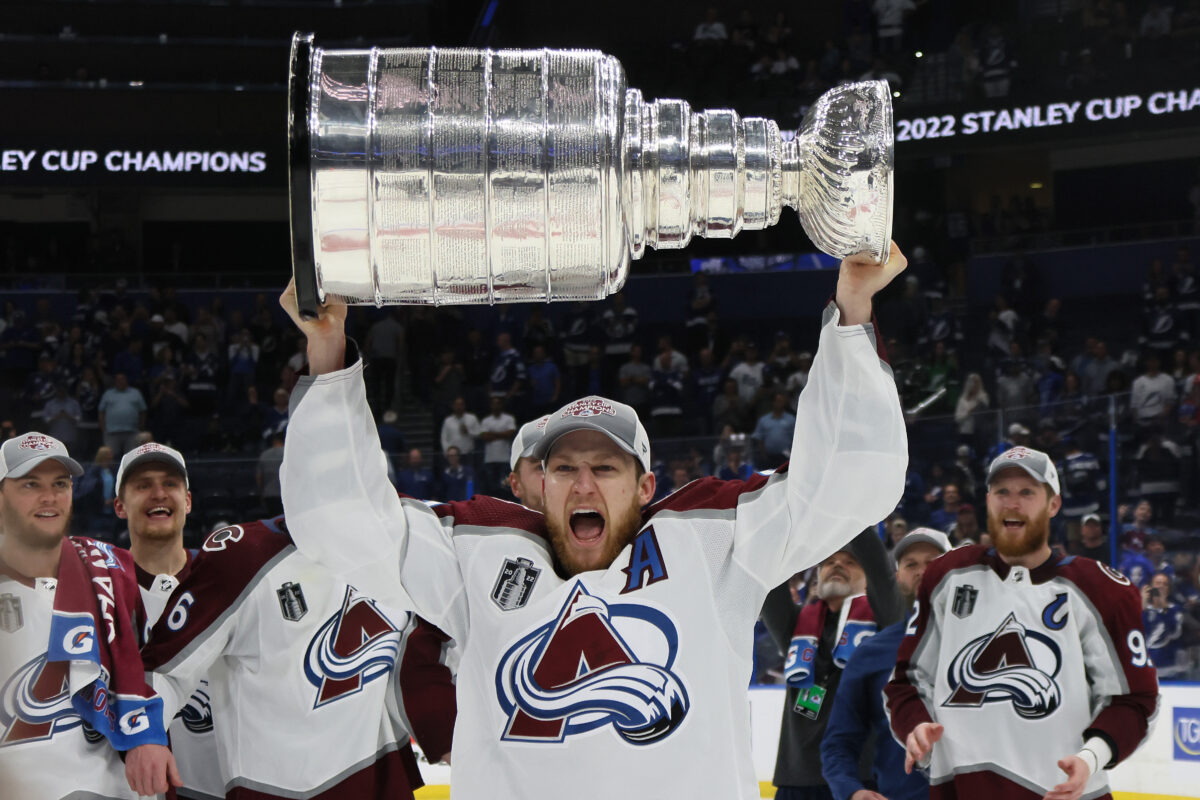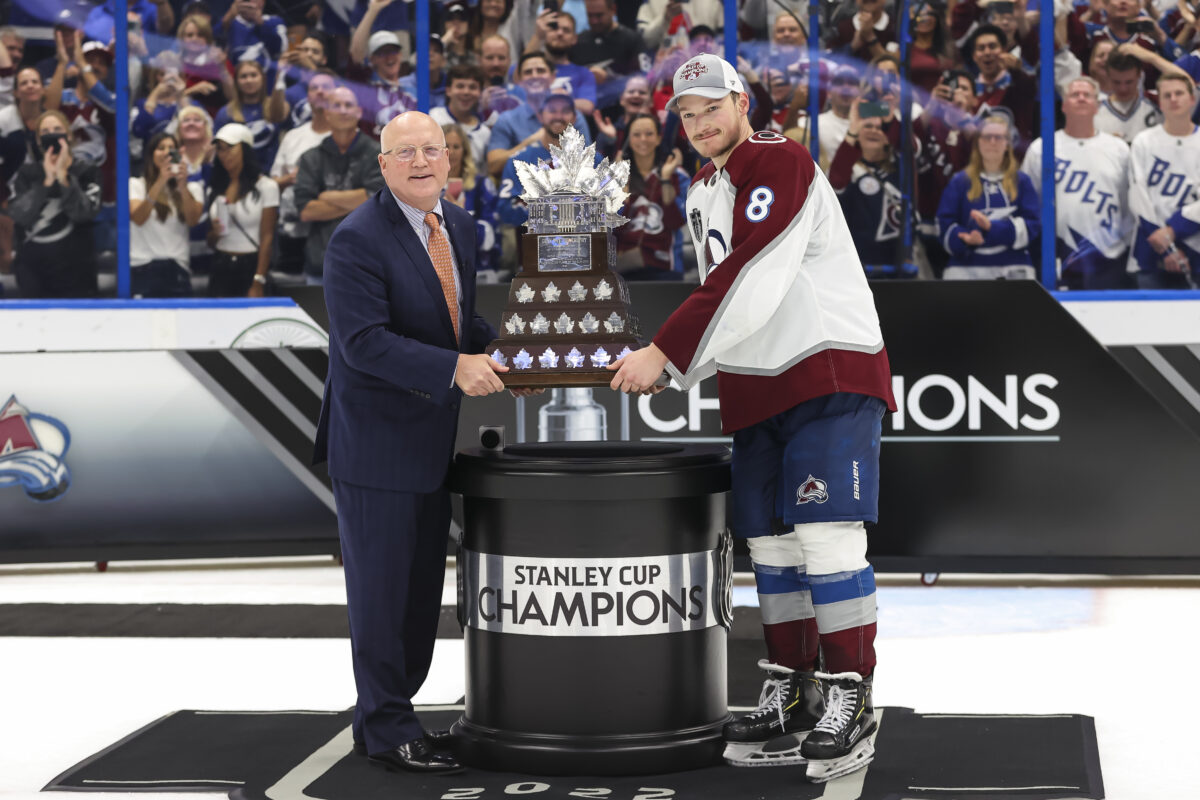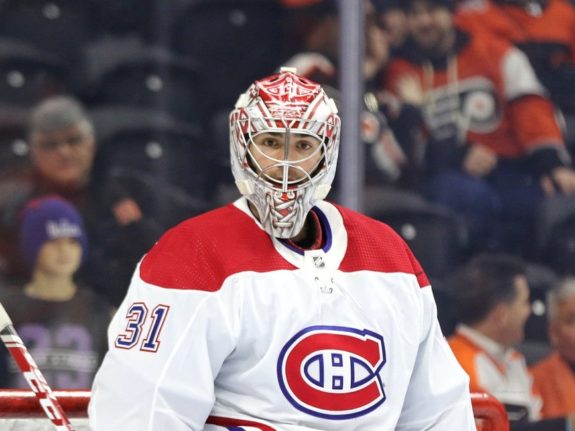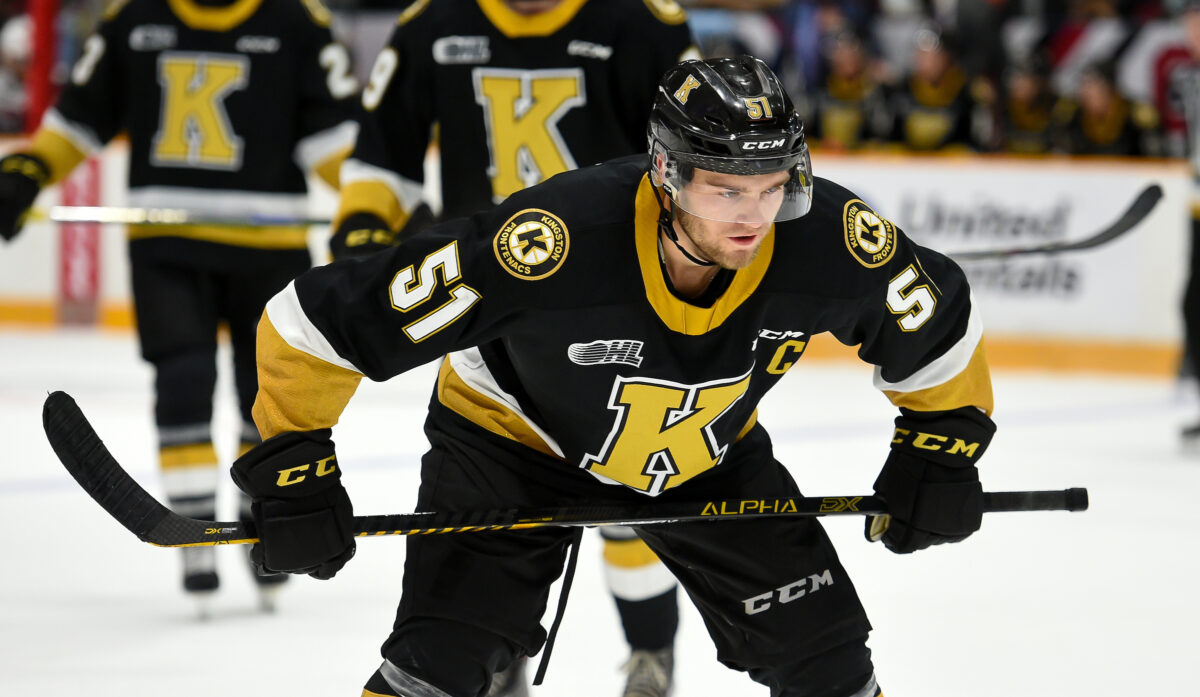It was an off-the-rails 2021-22 for the Montreal Canadiens, where they obviously finished in last place, “earning” the first-overall pick. However, according to Joe Sakic, general manager of the Stanley Cup-winning Colorado Avalanche, that’s what you need to build a contender. Wouldn’t he be an expert on the matter? You would think.
It really wasn’t that long ago the Avalanche were where the Canadiens are now, in last place in the entire NHL, playing in similarly tough divisions. Playing in the crowded Central, the Avalanche also finished last in 2016-17, just five seasons ago, justifying the oft-thrown-around term “five-year plan.” It turns out, it can be done.
2021-22 Canadiens vs. 2016-17 Avalanche
Coincidentally, the Avalanche finished with 22 wins like the Canadiens this past season. The sad part is, as bad as the Canadiens are, the 2016-17 Avs also finished with seven fewer points (48), in spite of having the talented players like Nathan MacKinnon, then just 21 years old, at their disposal.

MacKinnon led the Avalanche in scoring that season with a modest 53 points. He’s one of five total remnants on the current championship roster. The others Mikko Rantanen, Gabriel Landeskog, Erik Johnson and J.T. Compher.
In case it hasn’t dawned on you yet, with exception to Compher, a 2013 second-round pick who scored a career-high 18 goals this past season, all of the above names are first-rounders. In fact, they’re all top-10 picks. With exception to Rantanen, they’re all top-two picks. In fact, both MacKinnon and Johnson are first-overall picks, with the latter being the only non-homegrown name of the bunch (with Compher having been initially drafted by the Buffalo Sabres, spending time only in the Avalanche farm system).
To Tank or Not to Tank the Question Facing Canadiens
Maybe, just maybe, there’s something to this idea of languishing at the bottom of the standings for a few seasons to stockpile blue-chip prospects. Whether it’s purposeful tanking or not, the strategy has proven effective, with the Avalanche also boasting the likes of Conn Smythe Trophy-winner Cale Makar (fourth overall the ensuing 2017 NHL Entry Draft), Bowen Byram (fourth overall in 2019) and Alex Newhook (16th overall in 2019).

And it’s not just the reason why the Avs beat the Tampa Bay Lightning in the Stanley Cup Final where the Canadiens fell short in 2021. It’s why the Avalanche have been a playoff team for the last five seasons, a legitimate contender for the last two at least and in position to stay atop the standings for a good, long while.
It’s why the Canadiens should follow their lead, with a new head coach and several pieces already in place, just like the Avalanche back then. The Canadiens already have two thirds of a first line in Nick Suzuki and Cole Caufield, both presumably under team control for the foreseeable future. Ditto for young defensemen like Alexander Romanov, Jordan Harris and Justin Barron, who was coincidentally acquired from the Avalanche at the trade deadline for Artturi Lehkonen. They are all building blocks of the future.
While the jury is still out on how they’ll each pan out, especially the latter two defensemen, the same was arguably true for several members of the Avs fivesome above, with Compher having made his Avs debut in 2016-17, which was also Rantanen’s rookie season. Even the polarizing Josh Anderson will still be under contract five seasons from now, with his Habs deal set to expire in 2027. As a speedy power forward, albeit an inconsistent one, he obviously holds value, but potentially more so on the trade market, especially if the Habs are looking five years down the road.
MacKinnon’s Sweetheart Deal
Admittedly, there are some differences between the two teams. Back in 2016-17 MacKinnon was in the first year of a sweetheart deal with a cap hit of $6.3 million that only expires at the end of 2022-23. Having one of the best players on your team (and the world) on a deal like that, through the prime years of their career no less, obviously helps a lot.
At the opposite end of the spectrum, the Canadiens have been handcuffed by deals made by the previous regime. They only recently got out from under the thumb of the “retired” Shea Weber‘s contract (at the cost of taking on Evgeny Dadonov’s $5 million cap hit for this season).
The Canadiens are right up at the cap. So, the trade does handicap them somewhat, especially with the future of goalie Carey Price, who has a $10.5 million hit, mired in uncertainty. As a result, goaltending is arguably the Habs’ biggest question mark, but, on the plus side, as a worst-case scenario, Price’s deal expires in 2026, giving the Canadiens a realistic shot at finding a replacement, a one-season gap between the point at which Price’s deal ends and this hypothetical just-opened five-year window to win a championship closes.

That’s enough time, especially considering, as the Avalanche have just proven with Darcy Kuemper, you don’t need elite goaltending to win it all. They actually made the decision to let Vezina Trophy finalist Philipp Grubauer go at the end of the 2020-21 season.
Canadiens in Position to Contend for Cup by 2025?
More to the point, as history has proven, you especially don’t need a lot of cap space devoted to the goaltending position to win it all. Just the opposite, actually. It’s a hindrance. True, the Canadiens don’t get as far as they did in the playoffs in 2021 without Price, but they also don’t go blow for blow against the Lightning unless they have more depth in front of him.
Related: What Canadiens Can Learn from 2022 Stanley Cup Semi-Finalists
The Avalanche did have that depth and then some, and the primary reason they were able to get it was through drafting, which makes the Canadiens’ upcoming first-overall pick at the 2022 NHL Entry Draft so critical. While the Canadiens aren’t likely to get another Makar, they do have one benefit the Avalanche didn’t after having finished last in 2016-17: the first pick, with the Avs infamously losing the NHL Draft Lottery, but nevertheless still arguably choosing the best player available.

In some respects, it gives the Habs little excuse but to make the most of this opportunity in front of them, because that’s what it is. They can only go up from here. In fact, the Canadiens arguably have a head start, with more of stocked farm system than the Avs back then. However high they end up reaching it’s going to be on them.
Ultimately, if it’s possible for the Canadiens to contend for the Cup by 2025, it’s certainly possible for them to win it by 2027. The Canadiens obviously aren’t the Avalanche, but, in a copycat league, they can certainly take their cues from the reigning Stanley Cup champs. Who wouldn’t in this situation? Five years may be a long time away, but there’s obviously still a lot to be done. The Canadiens can’t afford to waste a moment (or a top pick).